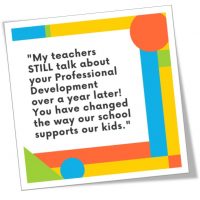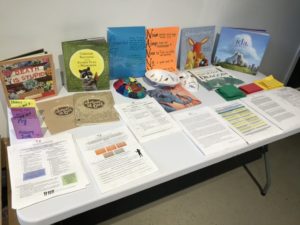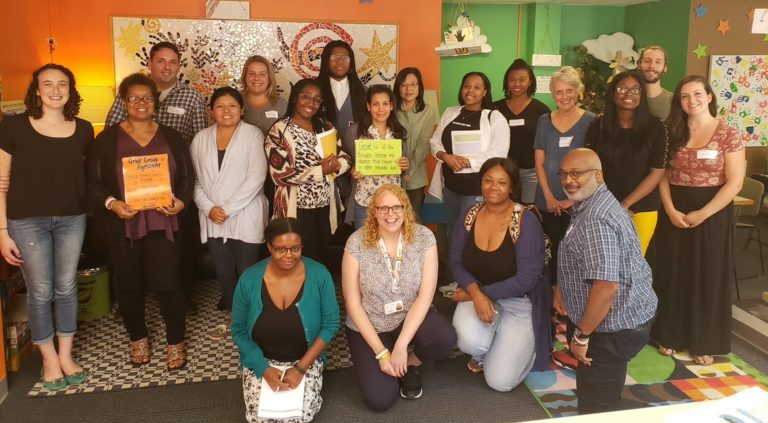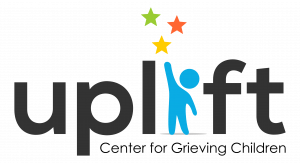Build Your Capacity for Compassion.




Partners In Healing.
Uplift believes that supporting a whole child involves equipping the adults in youth’s environments with skills and tools to respond effectively to their needs and prevent further challenges. To support professionals, families, and communities in better serving grieving and traumatized youth, Uplift offers training on a variety of topics. All training can be tailored to meet the needs of the requesting school or organization.
Training can be modified to be relevant for the role of attendees, as well as for a desired focus (e.g., survivors of homicide, suicide, or substance-related deaths). Uplift places an emphasis on interactive activities and experiential learning in all training, with the goal of providing attendees with concrete skills and strategies that can be immediately applied when working with youth.
Currently, Uplift training for school staff, educators, mental health professionals, and students are hosted by a school or agency, with Uplift staff traveling to a training host site. In the future, we will offer on-site training at the Uplift Center for Grieving Children office in East Falls for interested professionals, so please stay tuned for more information!
To be added to the email listserv about upcoming trainings, please email katherine@upliftphilly.org with the subject line “Add to Email Listserv.”
School-Wide Professional Development Trainings
2 hours minimum
Designed for Educators and School Leadership, Part 1 and Part 2 Available
- Review impact of trauma, complex trauma & traumatic loss on children’s brains, bodies & social-emotional functioning
- Shift our mindsets to view students through a new lens, specifically in regard to their behavior
- Learn the essential elements for trauma-informed schools and fundamentals for being a trauma-informed adult
- Understand how classroom management & structures can mitigate the impact of trauma on students’ learning
- Learn concrete strategies for cultivating safety in school and in the classroom for students exposed to trauma and traumatic loss
2 hours minimum
Designed for Culture Staff (Student Climate Staff, Lunch/Recess Supervisors, etc.)
- Review the impact of trauma, complex trauma, and traumatic loss on children’s brains, bodies, and social-emotional functioning
- Shift our mindsets to view students through a new lens, specifically in regard to their behavior
- Learn the essential elements for trauma-informed schools and fundamentals for being a trauma-informed adult
- Learn concrete strategies for cultivating safety in school for students exposed to trauma and traumatic loss
- Learn and practice skills for safely managing and redirecting challenging behavior
2.5 hours minimum
Designed for Principals & Assistant Principals
- Review impact of trauma & traumatic loss on children’s brains, bodies & social-emotional functioning
- Learn the essential elements for trauma-informed schools and fundamentals for being a trauma-informed adult
- Reflect on the 16 Warning Signs of Trauma Exposure Response (van Demoot Lipsky, 2009) and our ethical responsibility of self-care in order to sustain trauma-informed leadership in schools
- Learn concrete strategies for cultivating safety in school and in the classroom for students exposed to trauma and traumatic loss
- Set goals for ourselves as educators and leaders about how we will employ and utilize these strategies
2 hours minimum
Designed for Educators and School Leadership
- Reflect on our own implicit and explicit assumptions on grief
- Define grief and its potential impact on children’s emotional, physical, behavioral and cognitive functioning
- Learn about how childhood development impacts youth’s concept of death & timelines for grieving children
- Gain tools in speaking with children about death, funerals, cremation, their own grief, and potential triggers in the classroom
- Learn about potential warning signs and when to refer for additional support
2 hours minimum
Intended for schools & youth-serving agencies before a death occurs
Designed for all staff, particularly those involved in school safety, culture, & counseling
- Review best practice recommendations for making a plan to support students & staff after the death of a student or staff member
- Define grief & traumatic loss, and its potential impact on children’s emotional, physical, behavioral and cognitive functioning
- Gain tools in how to support and speak with students about a death, their grief, and potential triggers at school
- Learn about potential warning signs and when to refer for additional support
- Gain strategies for improving staff self-care and increasing support after a school death
2 hours minimum
*Priority scheduling given*
Intended for schools & youth-serving agencies after a death occurs
Designed for all staff, particularly educators involved in the day-to-day life of students
- Reflect on the emotional impact our own grief has on us as professionals and as adults, how that impacts well-being and work performance
- Discuss the ethical responsibility of self-care and gain strategies for building a structure for self-care into our personal and professional lives
- Review grief and its potential impact on youth’s emotional, physical, behavioral & cognitive functioning
- Gain tools in speaking with youth about death, funerals, cremation, their own grief, and potential triggers at school
Trainings for Clinicians, Social Workers & School Counselors
2 hours minimum; can be extended to 2-4 hours
Designed for clinicians, social workers, therapists, and school counselors
- Understand how society, culture, and religion impact grief and mourning
- Define grief and its potential impact on children’s emotional, physical, behavioral and cognitive functioning
- Learn about how childhood development impacts a child’s concept of death & timelines for grieving children
- Review Childhood Traumatic Grief (CTG) signs and reactions
- Gain tools in speaking with children about death, funerals, cremation, their own grief, and potential triggers
- Learn an overview of Trauma Focused-Cognitive Behavioral Therapy (TF-CBT) (available in extended option)
- Practice sample activities to support children and teens who are grieving (available in extended option)
2 hours minimum; can be extended to 2-4 hours
Designed for clinicians, social workers, therapists, and home visitors
- Reflect on our own implicit & explicit assumptions on grief
- Review grief and the 6 Reconciliation Needs of Mourning Children & Touchstones for Adults (Wolfelt, 1992)
- Reflect on the emotional impact our own grief has on us as professionals and as adults, how that impacts well-being and work performance
- Review Vicarious Trauma and the 16 Warning Signs of Trauma Exposure Response (van Demoot Lipsky, 2009)
- Discuss the ethical responsibility of self-care and gain tools for building a structure for self-care into our personal and professional lives
3 hours minimum; can be extended to 4-6 hours
Designed for professionals within, or partnering with schools, facilitating groups with youth on any topic
- Reflect on our implicit and explicit assumptions about what it means to be a young person
- Review essential tenets of partnership with schools (including District, Charter, and Catholic schools)
- Discuss how to develop group activities and structure grounded in theory and science that accommodate youth needs
- Learn concrete strategies for cultivating safety and encouraging desired behavior in groups for students who have experienced trauma
- Set goals for ourselves as facilitators about how we will employ and utilize these strategies
- Discuss and plan for content of group vs. structure of group (available in extended option)
- Practice facilitating opening and closing rituals with group (available in extended option)
- Practice strategies for attuning with youth & reflect on barriers to doing this effectively (available in extended option)
Workshops for Parents & Caregivers
1.5 hours minimum
Designed for caregivers/guardians and adult family members of youth
Can be done specifically for grandparents, mothers, fathers, and resource/foster parents upon request
- Define grief and its potential impact on children’s emotional, physical, behavioral and cognitive functioning
- Understand about how childhood development impacts a child’s concept of death
- Learn what children and teens tell us about their emotions through their behaviors
- Learn concrete strategies for cultivating safety for youth exposed to trauma and traumatic loss
2 hours minimum
Designed for caregivers/guardians and adult family members of grieving/traumatized youth
- Define grief and its potential impact on children’s emotional, physical, behavioral and cognitive functioning
- Learn what children and teens tell us about their emotions through their behaviors
- Review how to equip caregivers with tools to make a unique plan for each family to make the holiday season feel more manageable
- Learn the four steps to prepare for holidays, anniversaries, or other significant days
Community & General Trainings
2 hours minimum
Designed for community organizations working with youth in or outside of school
- Reflect on our own implicit and explicit assumptions on grief
- Define grief and its potential impact on children’s emotional, physical, behavioral and cognitive functioning
- Learn about how childhood development impacts a child’s concept of death & timelines for grieving children
- Gain tools in speaking with children about death, funerals, cremation, their own grief, and potential triggers
- Learn about potential warning signs and when to refer young people for additional support
Fees for training
2-Hour Training: $350
2.5-Hour Training: $440
3-Hour Training: $525
6-Hour Training (full day): $1050
If outside of Philadelphia, there is an additional fee for mileage and travel expenses.
With our fees, please know that we can work within existing budget parameters your school or organization may have. Contact Katherine to learn more – we do not want the fee to be a barrier to holding a training!
Please note that Professional Development trainings are typically scheduled 1-2 months in advance, and can be tailored to suit your needs.
Logistics
For more information or to hold a training, please contact:
Katherine Streit, MSW, LSW, M.S.Ed
Training Coordinator
katherine@upliftphilly.org
267-437-3123 x 1001
What Trainees Have to Say
